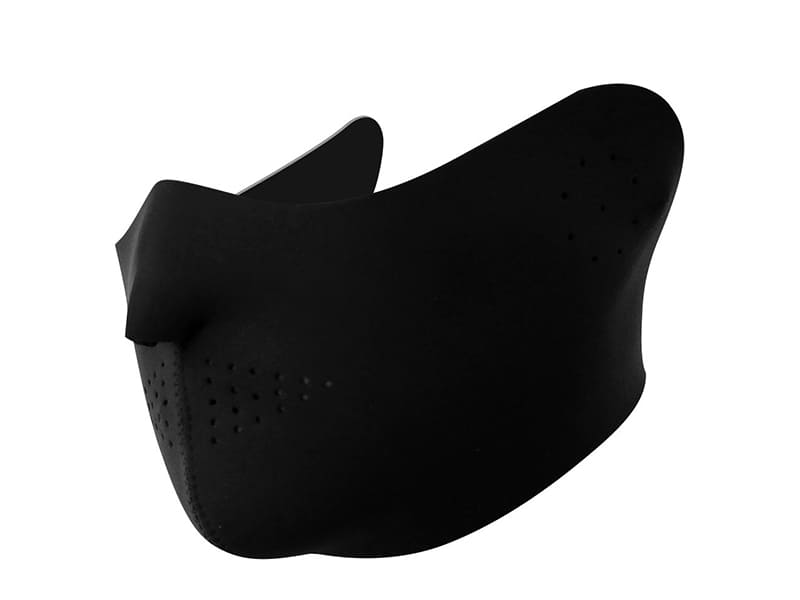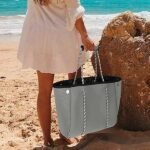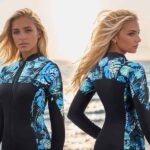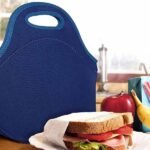Face masks have become an essential accessory for outdoor activities, especially in environments with harsh weather or air conditions. Among the many options available, neoprene face masks stand out for their unique features and versatility. But what makes them so effective, and where can they be used?
Neoprene face masks are widely used for protection against cold weather, dust, and wind. They are ideal for outdoor activities, industrial use, and even casual wear, thanks to their durability, insulation, and comfort.
Let’s explore the benefits, uses, and care instructions for neoprene face masks to understand why they are a popular choice.
Is Neoprene a Good Material for Face Masks?
Neoprene is known for its flexibility, insulation, and water resistance, making it a popular material for face masks.
Yes, neoprene is an excellent material for face masks because it provides insulation, wind resistance, and durability. It also offers a comfortable fit and is reusable, making it eco-friendly.
Why Neoprene Works Well for Face Masks
| Feature | Benefit |
|---|---|
| Insulation | Keeps face warm in cold weather |
| Flexibility | Adapts to facial contours for a snug fit |
| Water Resistance | Protects against moisture and light rain |
| Durability | Withstands wear and tear over time |
For example, neoprene masks are frequently used in outdoor sports like cycling and skiing, where protection from wind and cold is essential.
What Do Rubber Face Masks Offer?
Rubber face masks, including those made from neoprene, provide unique benefits for specific environments and activities.
Rubber-based masks, such as neoprene masks, offer protection against wind, dust, and minor environmental pollutants. They also serve as a barrier against moisture and temperature changes.
Common Features of Rubber Face Masks
- Windproofing: Prevents cold air from causing discomfort.
- Dust Protection: Shields the face in dusty environments, such as industrial sites.
- Reusability: Unlike disposable masks, rubber-based masks are washable and reusable.
These qualities make neoprene face masks a preferred choice for both casual and professional use.
Are Neoprene Face Masks Suitable for Cold Weather?
Cold weather can be harsh on the skin, especially during outdoor activities. Neoprene face masks excel in providing warmth and protection.
Neoprene face masks are highly suitable for cold weather due to their insulating properties. They trap heat effectively, keeping the face warm while shielding against icy winds.
Benefits of Neoprene in Winter
- Thermal Insulation: Maintains warmth in freezing temperatures.
- Moisture Resistance: Prevents snow or rain from soaking the material.
- Breathability: Allows airflow while retaining heat.
For instance, skiers and snowboarders often wear neoprene masks to protect against frostbite and windburn.
Which Activities Are Best Suited for Neoprene Face Masks?
Neoprene face masks are versatile and can be used across various activities and environments.
Neoprene face masks are ideal for outdoor sports, industrial work, and everyday use in cold or windy conditions. Their durability and comfort make them suitable for prolonged wear.
Recommended Activities for Neoprene Masks
| Activity | Reason |
|---|---|
| Cycling | Protects against wind and debris |
| Motorcycling | Shields face from dust and cold air |
| Skiing/Snowboarding | Provides insulation and prevents frostbite |
| Industrial Work | Guards against dust and minor pollutants |
Whether you’re commuting in cold weather or working in a dusty environment, neoprene masks offer reliable protection and comfort.
How Do Neoprene Face Masks Compare to Other Types of Masks?
There are many types of face masks, each designed for specific purposes. How does neoprene compare?
Neoprene face masks are more durable, insulating, and reusable than cloth or disposable masks. They are less effective for medical-grade filtration but excel in outdoor and environmental protection.
Comparison of Face Mask Types
| Feature | Neoprene Masks | Cloth Masks | Disposable Masks |
|---|---|---|---|
| Durability | High | Moderate | Low |
| Insulation | Excellent | Poor | None |
| Reusability | Yes | Yes | No |
| Filtration | Moderate | Low | High (medical-grade only) |
For example, while cloth masks are lightweight, they lack the insulation and windproofing that neoprene masks provide.
How Do You Wash a Neoprene Face Mask?
Proper cleaning is essential to maintain the effectiveness and hygiene of neoprene face masks.
To clean a neoprene face mask, use mild detergent and warm water. Gently hand wash the mask, rinse thoroughly, and air-dry in a shaded area. Avoid machine washing or using harsh chemicals.
Steps to Wash a Neoprene Mask
- Prepare Cleaning Solution
- Mix mild detergent with warm water in a basin.
- Hand Wash the Mask
- Gently scrub the mask using your hands or a soft cloth.
- Rinse Thoroughly
- Remove all soap residue with fresh water.
- Air-Dry
- Hang the mask in a shaded, well-ventilated area.
Tips for Maintaining Neoprene Masks
- Avoid using bleach or strong detergents.
- Do not wring or twist the mask to prevent damage.
- Store the mask flat or hung to maintain its shape.
Conclusion
Neoprene face masks are versatile, durable, and ideal for protection against cold weather, wind, and minor pollutants. Their insulating and water-resistant properties make them a reliable choice for outdoor activities and industrial use. Easy to clean and maintain, these masks offer both functionality and convenience.
At Szoneier, we specialize in manufacturing custom neoprene face masks tailored to your brand’s needs. With years of experience and advanced production capabilities, we provide high-quality masks for businesses worldwide. Contact us at info@neoprene-bag.com or visit www.neoprene-bag.com to start your customization journey today!











